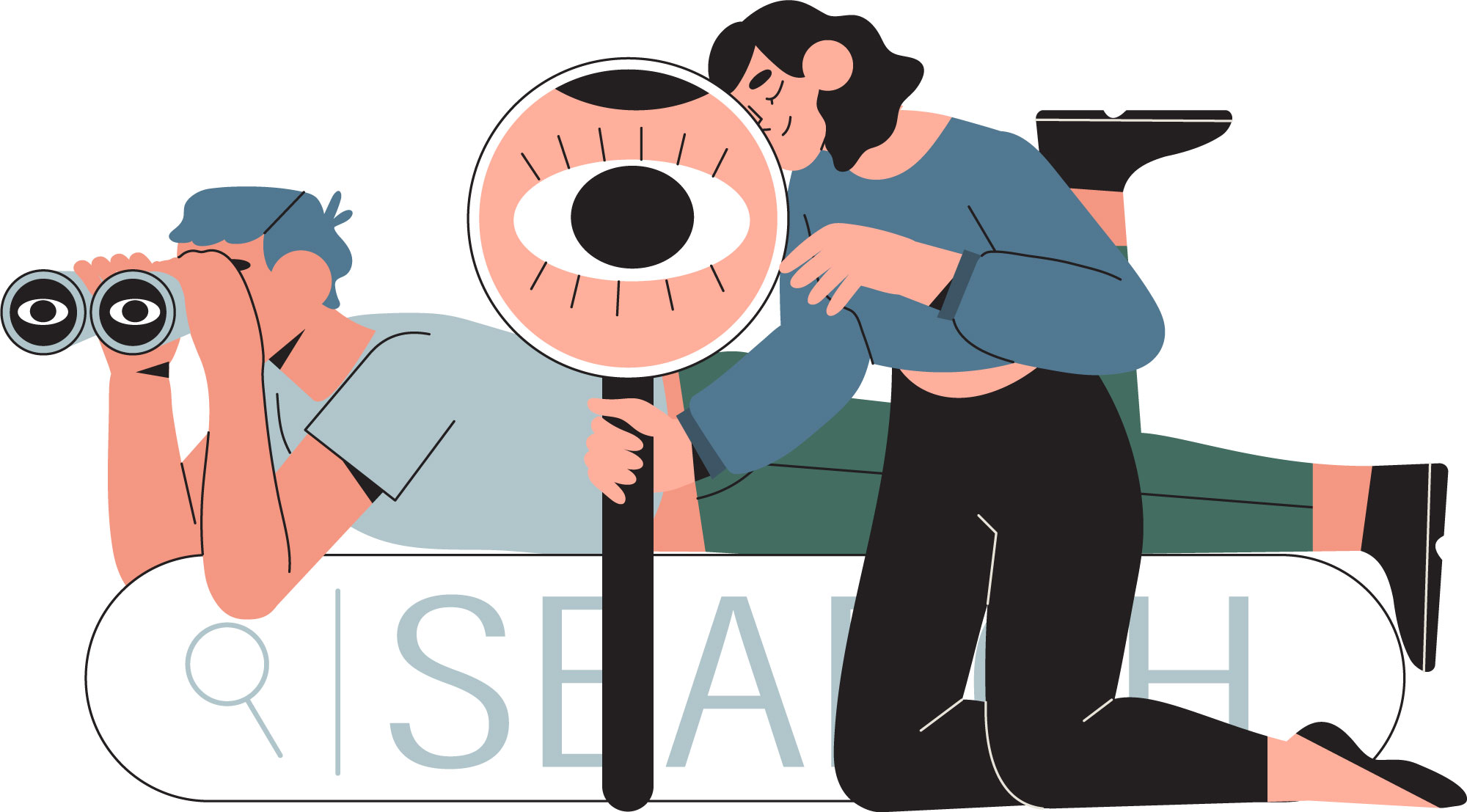Level Up Your Nerd Quotient with 6 Superhero Research Tips & Our Digital Resources
Posted on April 28, 2022 at 4:45 am

By Dana Mannino
Here’s my definition for librarian: n. A nerd who found a profession that legitimizes their obsessions.
Okay, so maybe not all librarians are nerds (or geeks—I use the terms interchangeably). I have noticed, however, that a significant number of librarians enjoy that librarianship honors expertise in our chosen fandoms. For example, if you have attended any of our trivia programs, you may have noticed how much loving care and planning goes into each question.
Many of us have invested significant time into one specialized interest. There are lore masters among us. What makes librarian nerdiness stand out is that we also seek out information about the wider applications of our fandoms across disciplines. Maybe these examples will surprise you.
- Scientists have studied whether the acts of watching Dragonball Z or playing a video game on a Nintendo Wii were better at distracting patients from pain.
- Scholars debate the portrayal of different sentient species in Star Trek and how it reflects our understanding of race here and now.
To find cool things like this, you need high-level searching skills! But you don’t need to be a librarian to memorize a list of the Valar (the demi-god like beings from Tolkien’s The Silmarillion).
Here is a step-by-step guide to nerding out with some super research skills.
Tip 1: Look in Scholarly Journals
Truly nerdy studies are published in scholarly journals. A scholarly journal is like a magazine where experts discuss topics with other experts in their field. For example, doctors and medical researchers share their latest discoveries with each other by publishing articles in the American Journal of Medicine, along with other medical journals for specialties.
Topics that fall into the realm of nerdom and geekdom pop up in journals from varying disciplines, including medicine, psychology, English, history, sociology, women’s studies, and so on.
Usually, you have to pay for an online subscription to access these specialized journals. But the library has subscriptions for you through our digital resources found in our Digital Library.
The library’s digital resources have the power to bring together journals from all sorts of academic disciplines, separate out the articles, and then look for your search terms in the articles to find a match. And we have several digital resources that include scholarly journals.
I tend to start my searches using ProQuest and Gale Academic OneFile.
Tip 2: Limit to Peer Reviewed
ProQuest and Gale Academic OneFile contain articles from a variety of different sources: newspapers, magazines, and book reviews included. However, when I’m looking for scholarly discussions on a topic, I’m not looking for newspaper articles announcing how the latest Fantastic Beasts movie did at the box office or for magazine interviews with Daisy Ridley about her costumes in the Star Wars movies.
To make sure you are getting the scholarly results you seek, be sure to check the box to limit results to things that have been “peer reviewed.” Peer review is the process scholarly articles go through before they are printed to make sure that the research meets academic standards. Clicking this box weeds out the fluffy stuff.

Tip 3: Use Quotation Marks
Do you know how many journal articles there are out there with the words “Dr” and “Who” in them? Answer: A. Lot.
And you will get all of them if you just type in the words Dr Who and click search. The digital resource will be looking for each of those as keywords, scouring all articles that have one or both of those words.
Instead, you can search for words in a particular order and paired together by enclosing the phrase in quotation marks: “Dr. Who”. Now, you will only see articles with those exact terms paired together.
Are you still not finding what you are looking for? Try alternate phrasing or spelling out terms in quotations such as “Doctor Who”.
Tip 4: Limit to Full Text
After some searching, ProQuest tells me that, somewhere in the world of published articles, there is one about Chilean college students who reenacted scenes from Dragonball Z as part of their 2011 protest for better public education. For this article, ProQuest gives me the citation for the article which includes information about who wrote it, where it was published and when, but the library’s subscription doesn’t include the full text of the article.
In order to read the whole article, I will have to request it via interlibrary loan (using the Suggest an Item form) and hope that another library has it and will send it to our library so I can check it out. In the meantime, I am sad that I’m missing out on this reading.
You can save yourself the disappointment of not being able to read an article that sounds really interesting but only has a citation or extract by limiting your search to articles with full text. You’ll never know what you’re missing, you’ll be able to read all of the results, and in my opinion, it’s better that way.
Tip 5: Use Unique Words
Remember how I said to search “Dr. Who” or “Doctor Who” instead of dr who? Well, it only sort of fixes the problem.
“Dr. Who” and “Doctor Who” still turn up articles with sentences like “The doctor who treated patient A reported high levels of cortisol.”
These are what researchers call false hits. If you’re getting a lot of false hits, you should try more specific vocabulary. For example, along with “doctor who,” you might search for the terms tardis, dalek, Gallifreyan, or “sonic screwdriver” (all part of the Doctor Who series).

Tip 6: Be Tenacious
Even when using unique vocabulary, you can still experience frustration during your research.
It turns out “TARDIS” is the name of a medical device. Dalek is used in an astounding number of articles to describe a monotone voice inflection. The word Gallifreyan, well, it just didn’t turn up many results.
The American Library Association (ALA) shares that expert researchers must “understand that first attempts at searching do not always produce adequate results,” and that you should “persist in the face of search challenges” and “exhibit mental flexibility and creativity.”
The ALA also urges you to take notes on your search strategies, which I forgot to do. So, I’m not sure exactly what terms I typed in, but after much trial and error, I finally found a Doctor Who article.
It argues that Doctor Who can help us understand our relationship with technology (“Mediating human-technology relationships: Explorations of hybridity, humanity and embodiment in Doctor Who”).
Putting the Tips to Work
My tenacity paid off! Here are some of my favorite nerdy finds that I dug up using our digital resources:
In the Journal of Religion and Popular Culture, ethicist John McDowell uses characters from the Star Wars universe to illustrate different moral attitudes towards war: “‘Wars Not Make One Great’: Redeeming the Star Wars Mythos from Redemptive Violence Without Amusing Ourselves to Death.”
In the education journal The Clearing House, Renée Dickinson uses examples from Harry Potter to argue that students learn more when their teachers act as facilitators rather than directors of the students’ learning: “Harry Potter Pedagogy: What We Learn about Teaching and Learning from J. K. Rowling.”
In the Spanish Journal of Medicine and Film (Revista de Medicina y Cine), Psychologist Lucas De Francisco Carvalho says we can use Anakin Skywalker’s transformation into Darth Vader to test a particular theory of personality disorders: “From Anakin Skywalker to Darth Vader: Understanding Star Wars based on Theodore Millon’s Theory of Personality Pathology.”
In the journal Sociology of Religion, cultural anthropologist Michael Jindra argues that the Star Trek fandom can be characterized as a sort of religion: “Star Trek Fandom as a Religious Phenomenon.”
In The Journal of Asian Studies, professor of Japanese, Kumiko Saito, says that the TV show Sailor Moon mirrors shifting ideas of what it means to be a woman in Japan: “Magic, Shajo, and Metamorphosis: Magical Girl Anime and the Challenges of Changing Gender Identities in Japanese Society.”
Several medical researchers collaborated in The British Medical Journal to imagine what the aging process would look like for Marvel superheroes: “Anticipating the Ageing Trajectories of Superheroes in the Marvel Cinematic Universe.”
In The Futurist, sociologist William Sims Bainbridge explores the idea that video game avatars may give us a certain kind of immortality: “Avatars and Virtual Immortality.”
Geologist Kristin Larsen examines what Tolkien’s works tell us about the author’s attitudes towards mining: “Smaug’s Hoard, Durin’s Bane, and Agricola’s De Re Metallica: Cautionary Tales Against Mining in Tolkien’s Legendarium and the Classical Tradition.”
And finally, out nerding us all, in 2015, a group of social scientists created a tool known as the “Geek Culture Engagement Scale (GCES),” which quantifies a person’s involvement in geek culture. You can read all about it in “A Psychological Exploration of Engagement in Geek Culture.”

Tags: academic journals, adults, digital library, digital resources, fandom, Gale, Gale Academic OneFile, kids, nerd, proquest, research, scholarly journals, search, teens, tweens

